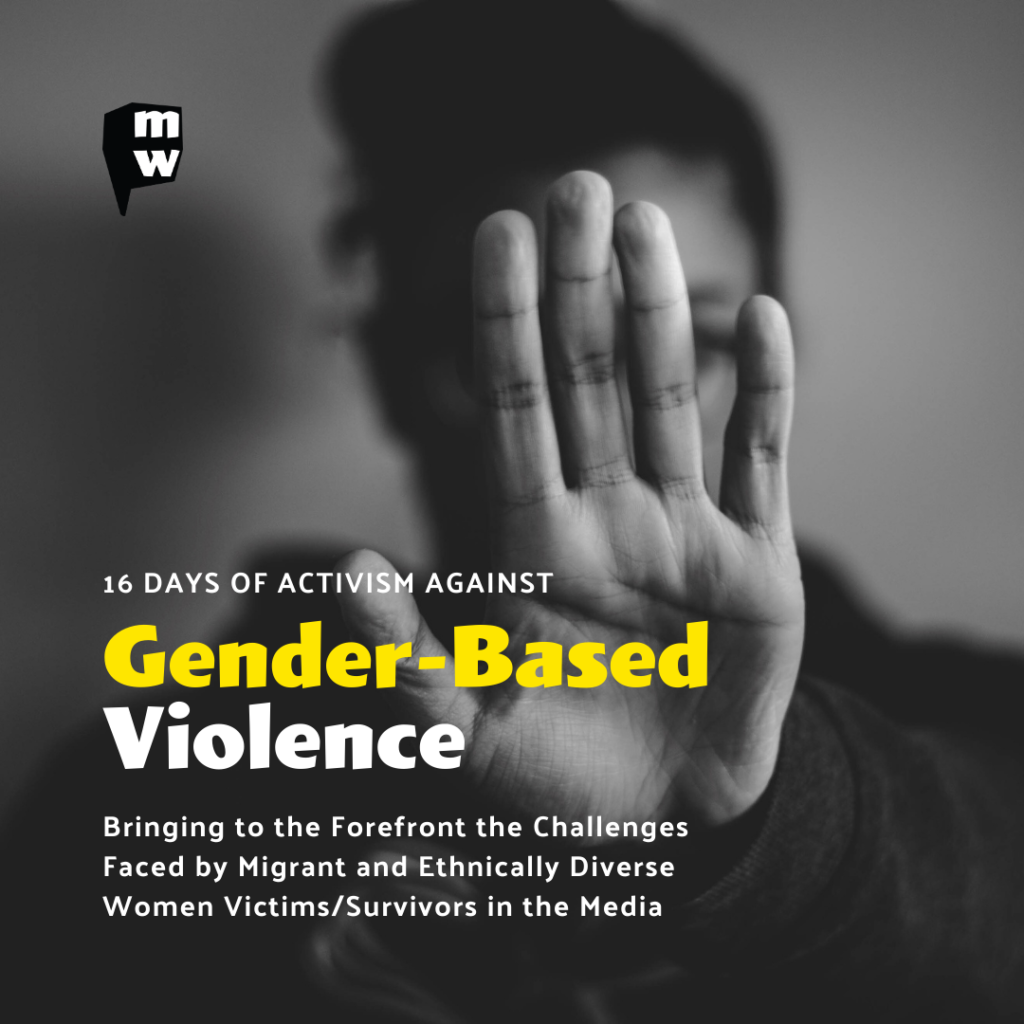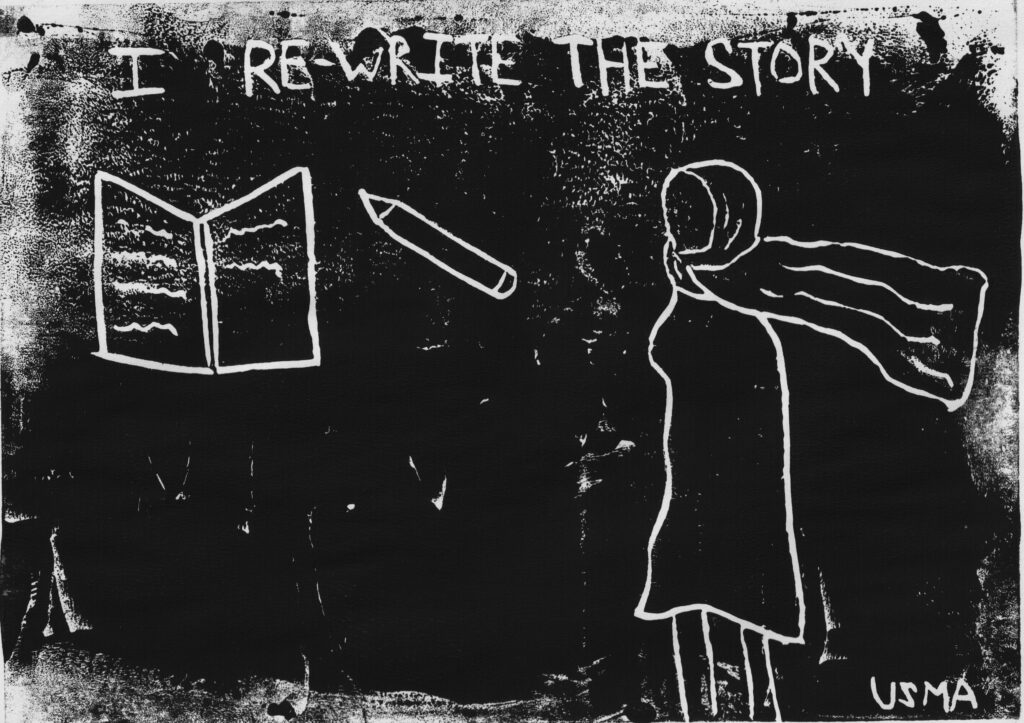As part of the “16 Days of Activism Against Gender-Based Violence” campaign, Migrant Women Press has partnered with key organisations, including Scottish Women’s Aid, to spotlight the experiences of migrant and ethnically diverse women victims/survivors. In this feature, Dr Marsha Scott, Chief Executive of Scottish Women’s Aid, discusses the organisation’s vital work and initiatives to combat gender-based violence (GBV).
Written by Laura Rodriguez-Davis
Born out of the Women’s Liberation Movement of the 1960s and 70s, Scottish Women’s Aid (SWA) began as an effort to coordinate a blossoming network of Women’s Aid groups popping up around Scotland to address violence against women and girls (VAWG). “The Women’s Aid Movement grew from women sitting around their kitchen tables and being pissed off that nobody was taking domestic abuse seriously,” informs Chief Executive Dr Marsha Scott.
Nearly 50 years later, SWA continues to support women by fighting against Gender-Based Violence through advocacy, government engagement, and providing resources to women. As an umbrella organisation to 33 grassroots groups, SWA envisions “a Scotland with no domestic abuse, where women, young people, and children enjoy all their human rights and have equal opportunity to explore all their ambitions and aspirations.”
“Our core work is focused on domestic abuse as a massive human rights violation…fueled by structural inequalities,” the SWA Chief Executive states. SWA make it clear that domestic abuse, defined in the Domestic Abuse (Scotland) Act 2018 as “a pattern of controlling, coercive, threatening, degrading and/or violent behaviour…by a partner or ex-partner,” includes more than just physical or sexual violence. It can also take the form of emotional, verbal, economic, institutional, and digital abuse. Behaviour such as excessive monitoring of the victim’s social media accounts, preventing rightful access to bank accounts, and threatening deportation all constitute domestic abuse.
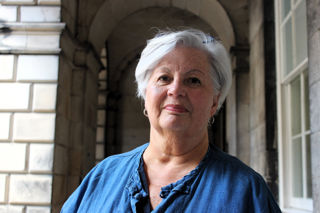
Vitally, SWA emphasises that domestic abuse is never the fault of the victim, even if a partner blames her. Dr Scott explains, “Violence against women and girls is the cause and consequence of women’s inequality.” Addressing gender inequality is key to SWA’s strategy for preventing violence against women and girls. Therefore, SWA is focused on tackling women’s poverty. As Dr Scott states, “Probably the single biggest thing we can do for all women who are experiencing domestic abuse [is] to address their poverty and the structural inequalities that make sure that they continue to be poor.”
For migrant women, especially those with an insecure immigration status, domestic abuse can take on unique characteristics that prey on their vulnerability as migrants. An abusive partner may hide passports or other important documents, prevent the victim from learning English or connecting with others, or claim she cannot call the police because she lacks legal immigration status. Knowing your immigration status is key to understanding your rights as a migrant facing domestic abuse.
Unfortunately, Women’s Aid groups are sometimes not permitted to help migrant women due to their immigration status. SWA is, however, striving to change this. Dr Scott is honest about the racism embedded in the UK and the need for improved perspectives and approaches in helping migrant women facing gender-based violence. “I think that our whole approach to intersectionality in Scotland and elsewhere has started from the white default and then tried to paste other oppressions on top of that, which is completely the wrong way around to go from our perspective,” she admits.
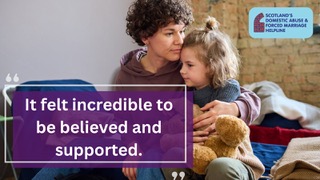
Dr Scott acknowledges SWA has a long way to go when it comes to practising anti-racism. Nevertheless, they have made intentional efforts to grow in this area. SWA’s received consultation for anti-racism education and training focused on contextualising policies for each team. They’ve also set up an internship for BME women to become trainers and changed their recruitment practices. Dr Scott believes, however, that the key to making services racially equitable is starting with the most marginalised women. “If you get it right for the most marginalised women and children, you’ll have it right for everybody,” she contends.
Still, there are resources available to assist migrant women affected by GBV. Scotland’s Domestic Abuse and Forced Marriage Helpline (0800 027 1234) is available 24 hours a day and offers translation and interpretation services. Dr Scott also notes that the helpline provides geographically specific information. The Scottish Women’s Rights Centre offers free and confidential legal information in multiple languages.
Additionally, the Ethnic Minorities Law Centre offers legal support, including immigration/asylum cases, for the Black and Minority Ethnic community in Scotland. While the need for better resources for migrant women is clear, Dr Scott commends the savviness of the available services who “are really committed to protecting, serving, listening to, believing women and children.”
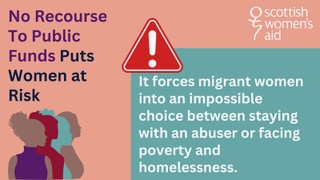
SWA also offers advice and safety tips for women experiencing domestic abuse. For example, ensure you have photos of important documents, such as passports and national ID cards, in case your partner takes them from you. If needed, create and prepare a plan for leaving with someone you can trust. Use code words to communicate distress and a need for assistance. If you have children, teach them how to access and use emergency services. You can also search for your nearest Women’s Aid here.
For organisations looking for support in responding to GBV and domestic abuse, SWA provides professional competency training guided by research and best practices, all available online. They cover a range of topics related to GBV and domestic abuse, such as HR policy and technology-related abuse. Research, reports, and briefings from SWA related to GBV, VAWG, and domestic abuse can also be found here.
Finally, Dr Scott understands the most powerful thing a victim or survivor of domestic abuse needs is to be believed. “And that’s the core of what we do. We’ll believe you.”
More about Scottish Women’s Aid here.
If you or someone you know is affected by domestic abuse, you can reach out to the Scottish Domestic Abuse and Forced Marriage Helpline at 0800 027 1234. Help can also be accessed via email at helpline@sdafmh.org.uk and via text/Whatsapp at 07401 288 595.

